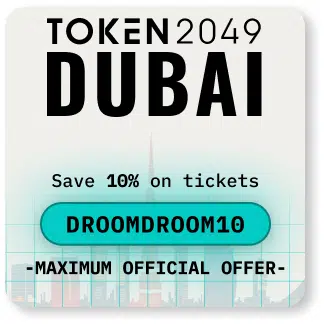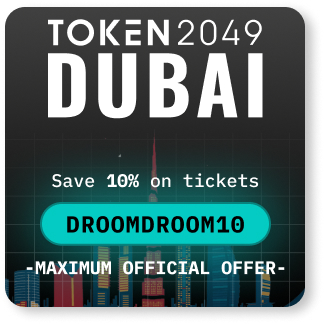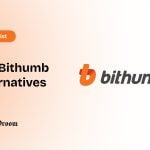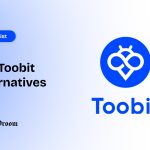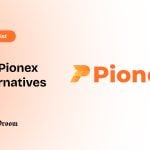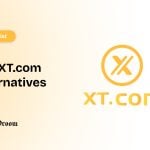The World Wide Web, commonly known as the Internet, has been changing rapidly, with Web3 communities providing new paradigms for writers where the notions include but are not limited to collaboration, ownership, and involvement. The term web3 refers to the next generation of the net that facilitates user-directed, public, and decentralized online activities with blockchain-enabled technology. This shift promises writers accessibility, direct connection with audiences, and a new way of conceiving both textual production and reception.
This exploration on the web3 community for writers explores 7 platforms that are transforming the writing space. These are writing platforms that take place at the edge of a new wave of writing with decentralized publications prioritizing author autonomy and creativity rewards and blockchain-based social networks providing meaningful communication among the writers’ community. It’s not just following a trend, it’s about becoming part of a paradigm shift that enables greater autonomy for writers and fosters a more holistic approach to literature.
For newbies interested in learning about crypto communities here is a guide for you.
What is Web3?
The third wave of the Internet is referred to as Web3 and this involves combining with distributed tech and notions. Different from today’s Web2 which is characterized by powerful centralized platforms that control users’ data, Web3 intends to establish an open, fair, and user-directed internet. The essence of Web3 communities lies in the implementation of blockchains together with decentralized protocols.
Web3 communities will change the current scenario wherein users are mostly content/service consumers by giving it an upgraded upgrade, in which users exercise control over their data, digital identities, and online interaction. This transition will come with an improved level of privacy, a high degree of security, as well as user empowerment. Dapps and smart contracts are an important part of Web3, facilitating trustworthy and automatic exchange of values without intermediaries.
Interested in knowing how web3 and blockchain are transforming businesses here is a guide for you.
What Is a Web3 Community?
A Web3 communities is a group of people who get together within the context of the concepts and techs associated with Web3 communities to socialize, cooperate, and provide each other with supplies and aid. Within the ever-changing internet world, the web3 community operates with distributed technologies as a basis (e.g., blockchain) to establish a more inclusive, transparent, participatory environment. These communities usually emphasize principles such as decentralization, self-governance, and users’ rights.
About writers and content creators Web3 communities may provide channels where authors can exercise more authority on their copyrights, receive a good fee for products that are distributed by decentralized financial systems among other things, and interact with their fans in a real sense without relying on third parties. The above are some of these communities associated with a more open, honest, and interactive web environment.
Web3 Communities for Writers
During the development of the Web3 revolution, there were many leading groups that transformed the field for writers through the development of new places where people may publish their work, determine its ownership, and create joint works. Here are seven of the best Web3 communities for writers, each contributing to a more decentralized, transparent, and rewarding literary ecosystem
Audius
Audius is a peer-to-peer music exchange application that employs Blockchain technology to support musicians, even the lyricists and writers. Audius ensures that artists will be able to own their work, receive compensation for it in crypto forms, and retain control over the IP rights of the content they upload.
Pros: Writers can utilize audio content, as Audius is a decentralized music streaming platform. Traditional middlemen are circumvented by content creators earning tokens directly from their audiences.
Cons: Although it’s a revolutionary platform, its focus on audio may not be appealing to writers primarily working with words.
Decentraland
Decentraland is a digital universe Web3 communities based on the Ethereum distributed ledger. The writers can thus visit a metaverse with the view to developing a compelling immersive story-making experience which they might also trade in. Decentraland offers a new means for writers to reach out to their audiences in a way that combines elements of creativity, technological innovation as well and decentralized ownership.
Pros: Decentland is an Ethereum-based digital reality platform. This is a platform where writers can develop and sell content in the virtual world. This promotes a decentralized setup whereby users have rights over their virtual assets.
Cons: With a small number of audiences compared to the traditional platforms and an intense VR experience, a writer may find that writing about VR may not be attractive at all.
Mirror
Mirror, for sure, is a decentralized publishing platform that allows writers to do their work utilizing blockchain techniques. Mirror is endowed with special features including tokenized ownership and DAO governance that enable writers to possess more control over their content and have direct support from users.
Pros: Mirror is an online platform for decentralized publishing where writers can sell tokens on their work. It is ownership and control-oriented.
Cons: Newcomers might find it less intuitive, and the success of a publication can largely rely on how an author manages to market and sell his tokens.
Foundation
The foundation acts as a creative market for writers to convert their work into NFTs and trade them by using cryptocurrency. Writers can set up digital ownership for their articles thus becoming directly connected to the readers as well as generating revenue using blockchain transactions.
Pros: Foundation is an avenue through which authors can tokenize their works and sell them as coins (non-fungible coins) thus coming up with a fresh technique for generating revenue from writing.
Cons: There is criticism of the impact of NFT space on the environment as well as its volatile nature.
DAO stack
A platform for creating and managing decentralized autonomous organizations (DAO) is called DAOSTACK. Writers may take part in DAOs involved in financing, governance, and co-creative content generation. Writers within DAOs are involved in DAO decisions and they earn their due payment via transparent and distributed arrangements.
Pros: This is where writers get involved in shared decision-making and democratic community governance, a capability facilitated by DAOs. It is possible through platforms such as DAOstack and Aragon that provide a platform to develop DAOs for content production and vetting.
Cons: Joining a DAO is not an easy process and making decisions based on consensus is a slow process. Community participation is critical to the success of a DAO.
Interested in knowing what DAO is? Here is a detailed explanation.
Cent
Cent is a system where writers can convert their content to cryptocurrency. Tip in cryptocurrency: it is an option that allows users to directly support writers providing them with transparency about their income. In addition, Cent acts as a more direct channel from writers to the audience following Web3 philosophy.
Pros: Writers may earn cryptocurrency at Cent – they need just write good things while the readers could tip useful content as well. It supports a one-on-one connection between manufacturers and clients.
Cons: There are not many users available. So, the potential readers of writers are limited. The tipping value will vary and depend upon how the platform is popularized.
Rarible
Writers can tokenize and sell their works on Rarible—a decentralized marketplace for non-fungible tokens (NFT). It enables authors to connect with people worldwide and search for buyers willing to purchase exclusive copies of each work.
Pros: A decentralized marketplace where a writer can tokenize and sell their work for NFTs.
Unprecedented global exposure opportunities and novel monetization options.
Cons: However, NFT marketplace success is uncertain based on the market conditions.
May have low visibility without proper promotion and marketing of the brand.
For newbies here is a detailed explanation of DAOs ‘ contribution to the crypto community.
The Future of Web3 Communities For Writers
Decentralized technology provides the basis for the evolution of Web3 communities for writers in the future. Here are some potential developments and trends to consider:
Decentralized Publishing Platforms
It is possible that web-based publishing platforms can be decentralized to a good extent to give power back to the writers. The use of smart contracts can help to automate royalty payments to ensure writers are paid accordingly.
Tokenized Content and Rewards
Tokenized ecosystems could be used to incentivize content creation and curation. Additionally, publishers will get tokens for quality content while readers can receive tokens as they interact with or even contribute to the Web3 communities. The use of a token-based system may be useful in building a closer relationship between a writer and his/her audience.
Digital Ownership and NFTs
Digital ownership of written works can be represented by non-fungible tokens (NFTs). Articles and stories that writers could tokenize can enable one to have a unique piece of digital content.NFTs would also include digital signatures by which writers would autograph and authenticate themselves.
Community Governance
Using blockchain technology, web3 communities could adopt decentralized governance. Voting is also used to decide on rules, policies, and direction of the community among writers and readers. Such decisions as content moderation and platform updates should be made together with the members of the community.
Micropayments and Fractional Ownership
As such, blockchain simplifies micropayment and lets writers get paid per article or even each chapter. This might help in reducing over-reliance on traditional advertising revenue. However, fractional ownership may be possible where diverse creators are involved and have an equal role in creating content.
Conclusion
Blockchain not only integrates tokenization and smart contracts in the writer center, but it also creates an immediate connection between readers in the writer center and writers. Digital ownership in NFTs also offers new authenticity and monetization options for writers. In addition, decentralized governance models, give power back into the hands of the community and allow them to guide the future direction of a platform. The combination of blockchain, smart contracts, and tokenomics is set to revolutionize how authors relate with their work, readers, and fellow writers, and this might lead to what is possibly an unprecedented democratization of the worlds of words.





